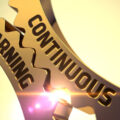
Losing a job can be a daunting and disorienting experience. However, it also presents an opportunity for reinvention and a fresh start in your career. In this article, we will explore the path to reinvention and how to transform your career after experiencing job loss.
Section 1: Navigating the Emotional Rollercoaster of Job Loss
1.1 Coping with the Initial Shock
Losing a job often comes as a shock and can leave you feeling disoriented. It’s important to allow yourself time to process the situation and acknowledge the emotions that come with it. Give yourself permission to grieve and accept the reality of the loss.
1.2 Embracing Grief and Resilience
Grief is a natural response to job loss, and it’s essential to acknowledge and embrace it. Allow yourself to experience the emotions that arise, but also focus on building resilience. Cultivate a positive mindset, seek support from loved ones, and engage in self-care activities to navigate through the emotional rollercoaster.
Section 2: Reflecting and Assessing Your Skills
2.1 Taking Stock of Your Strengths and Passions
Job loss offers an opportunity to reflect on your skills, strengths, and passions. Take the time to evaluate what truly motivates you and the areas where you excel. Identify your core competencies and the activities that bring you joy and fulfillment.
2.2 Identifying Transferable Skills
Transferrable skills are valuable assets that can be applied across various industries and roles. Assess your skills and determine how they can be utilized in different contexts. Identify the common threads that connect your past experiences and leverage them to explore new career paths.
Section 3: Exploring New Career Paths
3.1 Researching and Exploring Different Industries
After job loss, it’s essential to research and explore different industries to broaden your horizons. Investigate emerging sectors, trends, and job prospects. Attend industry events, network with professionals, and conduct informational interviews to gain insights into potential career paths.
3.2 Considering Further Education and Training
Further education and training can enhance your skill set and open doors to new career opportunities. Evaluate whether acquiring additional qualifications, certifications, or specialized knowledge could benefit your desired career path. Explore online courses, workshops, or degree programs that align with your interests.
3.3 Exploring Entrepreneurship Opportunities
Job loss can ignite the entrepreneurial spirit within you. Consider starting your own business or venturing into freelancing or consulting. Assess your skills, identify market needs, and develop a business plan. Embrace the autonomy and creativity that entrepreneurship offers.
Section 4: Building Your Personal Brand
4.1 Crafting a Compelling Personal Brand Story
Your personal brand tells a story about who you are, your unique value proposition, and your career aspirations. Craft a compelling personal brand story that communicates your skills, experiences, and aspirations. Emphasize your strengths and what sets you apart from others.
4.2 Leveraging Online Platforms and Networking
In today’s digital age, leveraging online platforms is crucial for career growth. Build a professional online presence through platforms like LinkedIn, showcasing your skills, achievements, and professional background. Actively engage in networking opportunities, both online and offline, to expand your professional connections.
4.3 Showcasing Your Expertise and Building Credibility
Demonstrate your expertise and build credibility in your desired field by sharing valuable content. Contribute to industry publications, start a blog, or participate in speaking engagements. By showcasing your knowledge and insights, you establish yourself as a trusted authority and attract new opportunities.
Section 5: Taking Action and Moving Forward
5.1 Setting SMART Goals
Set Specific, Measurable, Achievable, Relevant, and Time-bound (SMART) goals to chart your career path. Break down your goals into actionable steps and milestones. This approach will help you stay focused, motivated, and accountable as you work towards reinventing your career.
5.2 Developing a Strategic Action Plan
Develop a strategic action plan to guide your career reinvention journey. Outline the necessary steps, resources, and timelines required to achieve your goals. Regularly review and adjust your plan as needed to adapt to changing circumstances and seize new opportunities.
Conclusion
Job loss can be a challenging and transformative experience. However, by navigating the emotional rollercoaster, reflecting on your skills and passions, exploring new career paths, building your personal brand, and taking strategic action, you can reinvent your career and embark on a fulfilling and rewarding professional journey.










